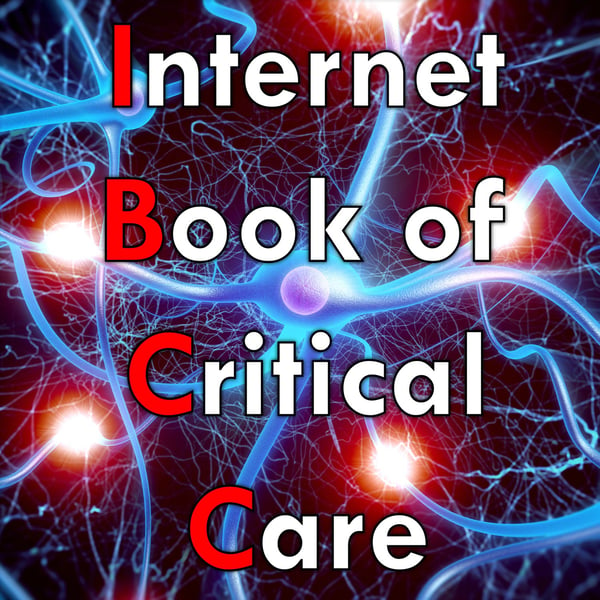IBCC Episode 27 - Myasthenia Gravis Crisis
The Internet Book of Critical Care Podcast
Adam Thomas
5 • 714 Ratings
🗓️ 7 March 2019
⏱️ 32 minutes
🧾️ Download transcript
Summary
In this episode we explore this rare but commonly seen entity of NMJ caused weakness. Come listen to review the patient population, identification and management of MG CRISIS.
Transcript
Click on a timestamp to play from that location
| 0:00.0 | Welcome back to the Internet Book of Critical Care podcast. |
| 0:07.0 | I'm here with Adam Thomas and we're going to talk about myasthenic crisis. |
| 0:10.0 | Josh, weakness. Isn't that some of the hardest things we deal with in the unit? |
| 0:15.0 | This is pretty tough and even after doing all the research and writing this chapter, I still think it's a little tricky. |
| 0:20.0 | So today we're going to try to make it clear in your minds what myasthenia gravis and myesthenic |
| 0:25.2 | crisis are. We'll throw a little colonergic crisis in there and we'll try to walk you through |
| 0:29.7 | the background info as it relates to the pathophys, the presentation, and the diagnosis. We'll talk |
| 0:34.5 | about that infamous list of drugs to avoid in myasthenia |
| 0:37.8 | graphus, which to be honest, it's all the heavy hitters we use a lot. Josh has broken down |
| 0:41.8 | the treatment into how to monitor these patients, how to provide general supportive care, |
| 0:47.6 | and some specifics around flare treatments with our anticholone esterase medications, our steroids, |
| 0:53.0 | and our Plex versus IVIG, that eternal debate. |
| 0:56.3 | So, Josh, started off pathophysiology of myasthenia gravis. What is cause in this weakness? |
| 1:02.6 | So in most cases, patients are going to develop auto-antibodies to the acetylcholine receptor in the |
| 1:08.1 | neuromuscular junction on the muscle cell. And basically what that does, |
| 1:11.1 | it reduces the efficacy of signaling through the acetylcholine receptor. And that's important because |
| 1:15.9 | the treatment of this oftentimes involves an acetylcholinerase inhibitor pyritostigmine. And what that does |
| 1:21.4 | is it kind of boosts up acetylcholine levels at the muscle end plate and improve signaling. Now, |
| 1:26.3 | the problem with that, there are a couple |
| 1:27.7 | problems. First of all, if you boost signaling too much, you can get a cholinergic crisis, |
| 1:31.6 | and we'll talk about that a little bit later. You can also get colonergic side effects. |
| 1:34.5 | And those receptors, are they the same ones that I block to get my air tube in there? |
... |
Please login to see the full transcript.
Disclaimer: The podcast and artwork embedded on this page are from Adam Thomas, and are the property of its owner and not affiliated with or endorsed by Tapesearch.
Generated transcripts are the property of Adam Thomas and are distributed freely under the Fair Use doctrine. Transcripts generated by Tapesearch are not guaranteed to be accurate.
Copyright © Tapesearch 2025.

